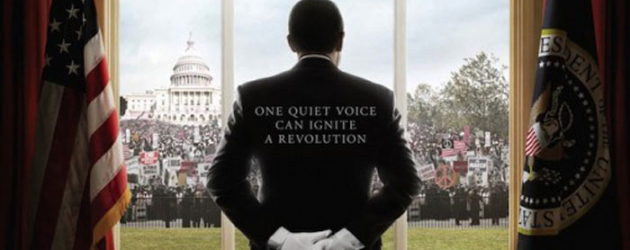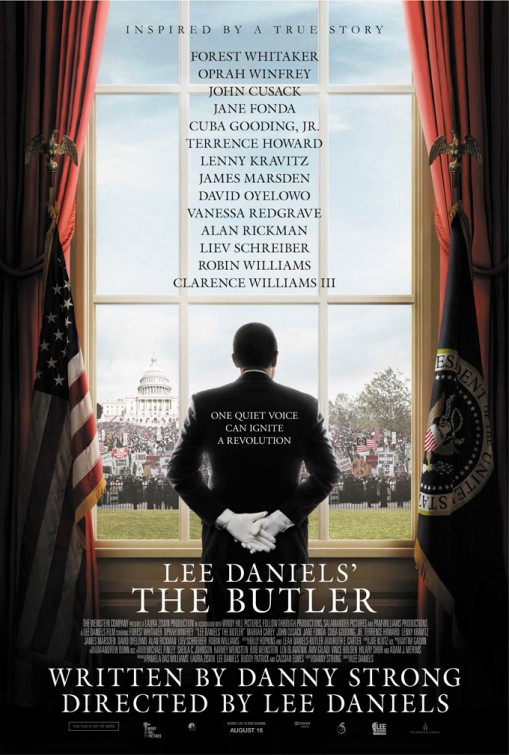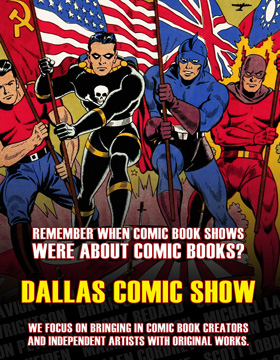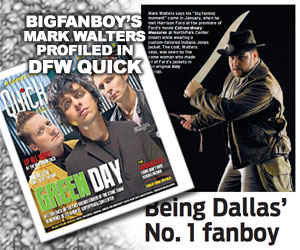The struggle for equal rights by African-Americans has been a focus of cinema almost since the beginnings of film. Productionss with such diverse plots as To Kill a Mockingbird, Guess Who’s Coming to Dinner? and In the Heat of the Night all had an assorted racial component. The latest to take on race relations is Lee Daniels’ The Butler.
The film is the story of Cecil Gaines (Forest Whitaker). The first images are of him picking cotton in the rural fields as a child. He sees the racism and hatred of whites first hand with the death of his father and the assault of his mother. It is a jarring visual that sets the tone for the next few hours. The old head of the house takes pity on the youngster and gives him a job in the big house.
While in the mansion, he begins to learn the craft of being a butler. The young Cecil has to serve the same man who killed his father but he never shows his pain. Eventually, he leaves the Southern hatreds for Washington D.C. He lands a job at a hotel and is trained to another, higher degree.
Eventually, Cecil is tapped by the right people to serve at the White House. Eisenhower (Robin Williams) is the first Commander and Chief he works for. He finds out that working in the most exclusive home in the world has both perks and responsibilities. He also finds that the black help get 40% less pay than the white help, a theme that runs throughout the flick.
Cecil works through the administration of six different presidents, all the way to Reagan. Through his eyes, we become witnesses to the Kennedy assassination, the lunch counter protests and the eventual granting of voting rights to black people. Toward the end of the picture, Cecil is asked to attend a state dinner, a rare honor for any US citizen.
The most honest aspects of Lee Daniels’ The Butler happen within the confines of the household. The struggle for parents to understand the different mindset of their children is an eternal conceit that always brings confusion and heartbreak. Parents doing everything to help their children make it further up the social-economic ladder become a goal as old as mankind.
Cecil and his wife Gloria (Oprah Winfrey) are of the old mindset of not rocking the boat. Eventually she sees the light to their plight and the major motivation is when Cecil finally shows a spark against all the repression he has suffered in his lifetime. It is one of the truest moments of the film.
There is this quiet dignity in doing good work and a major part of the film is showing the details of being in service at the White House. The suggestion is that by being the best at the job is proof that they are worthy individuals. It is the long road to becoming equal.
The problem with this film falls squarely on the shoulders of Lee Daniels. He never finds the spark of the script, going through the motions but not giving any meet to the audience. He has such a rich history to mine and merely scratches the surface of the characters.
Oprah Winfrey is one of the biggest celebrities on the planet, but she has done little acting over the years. Here she proves that she is a force of cinematic nature, one of the strongest performers who never works on film. The character is conflicted, tempted, loving and tough all within the same scene.
Forest Whitaker never finds his character in this work. It is supposed to be a slow burn role but the pot never truly boils over. We keep expecting him to explode over his situation and he never does. That may be the point of the film but it becomes an eventual point of frustration.
To be honest, Lee Daniels’ The Butler is a bit like eating spinach. It is something that you are supposed to do but do not really enjoy doing. Parts of this film are great while other parts are mind-numbingly boring. It is a mixed bag of a flick that will be gone and forgotten by the time Oscar voting begins.









